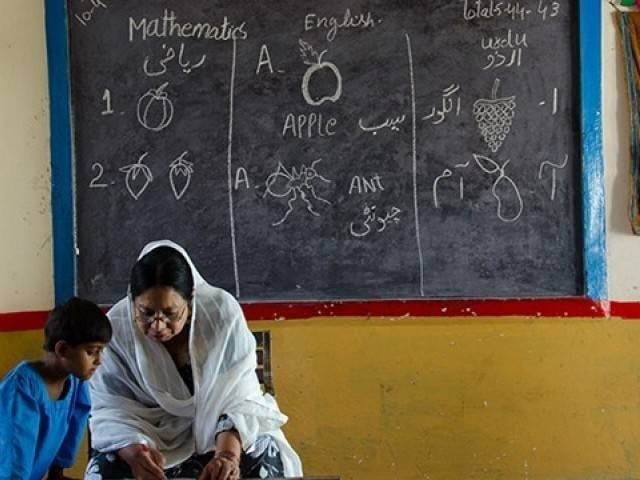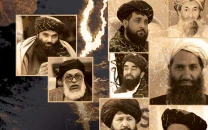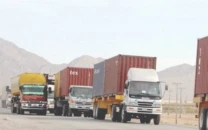World Teachers Day
The recruitment of teachers itself is a questionable exercise

The recruitment of teachers itself is a questionable exercise.
PHOTO: FILE
This recommendation sets benchmarks regarding the rights and responsibilities of teachers and standards for their initial preparation and further education, recruitment, employment, and teaching and learning conditions.
Every year, Pakistan also celebrates World Teachers Day. Events are held, teachers are remembered for their contribution to society. Lots of promises are made.
Teaching is one of the most respected professions in the country today. Ironically, It is also possibly one of the most poorly-paid professions.
There was a time when most teachers were government servants. But with the gradual privatisation of the education sector — yet another key area where the government abdicated its responsibilities, this also does not hold true. There are more private sector teachers than there are public sector ones.
Both sectors have their issues. Teachers in the public sector complain of the lack of merit in their promotions, the absence of a clear career path as well as poor working conditions. Many teachers who work in the government do not get paid on time, are deprived of basic facilities and have no incentive to do better. The working conditions of most schools are poor. Infrastructure is crumbling. There is theft and misuse of whatever government facilities are available. Those who try and do better are pushed down.
The recruitment of teachers itself is a questionable exercise. Teachers are hired by clearing a 33 per cent pass mark and in most instances have to pay their way to be selected. Hundreds of teachers who were hired by previous governments have seen their employment held up and salaries stopped.
It is a thankless job as there is no security provided to teachers either. In cities and villages, students are selected without merit and in many instances teachers are pushed into passing them irrespective of their performance.
In Pakistan, we also have the system of ghost teachers, whereby the teachers exist in the books only. Hundreds of schools are supposed to be functioning in different parts of the country especially in the rural areas, but in practice these school buildings have been converted into personal housing or cattle pens for powerful or influential people of the area. Even in towns and cities, government schools are turned into marriage halls in the evening with the school administration making millions from this practice. Teachers are told to stay home and collect a portion of their salaries.
Teachers irked at having to resubmit documents in a day
If the public sector is bad, the private sector is worse. It has expanded rapidly over the past three decades and
has overtaken the government in terms of enrolments. Now all parents want their children to go to an English-medium school irrespective of the fact that this school may be housed in a cramped bungalow with FA-pass faculty teaching.
Teachers in such private sector chains are paid bare minimum salaries and deductions are made for courses they have been enrolled in, regardless of whether they want to do them or not. The quality of education in many of these schools is very poor — the bottom line being making money. The level of exploitation in private schools is unprecedented.
In all this, one wonders where the government stands. Have our leaders given up on quality education? The government has to look at working conditions of both public and private sector teachers. Many of them are surviving on the bare minimum. There must also be a system of certification through which merit would be able to determine which teachers need to be promoted and which ones to let go.
We need to improve the working conditions of teachers drastically. Not only should their salaries be set much higher but there should be standardisation of work pay and allowances for both the private and public sector.
There is a lot of money in education and it is wrong to believe that the sector cannot afford quality. One of the biggest challenges for Pakistan is the lack of good teachers. But we can attract competent people if we pay well and introduce a system which rewards those who deserve it. Education is a provincial subject but that should not stop us from improving the status of teachers. Our future generations depend on this.
Published in The Express Tribune, October 1st, 2018.
Like Opinion & Editorial on Facebook, follow @ETOpEd on Twitter to receive all updates on all our daily pieces.













COMMENTS
Comments are moderated and generally will be posted if they are on-topic and not abusive.
For more information, please see our Comments FAQ